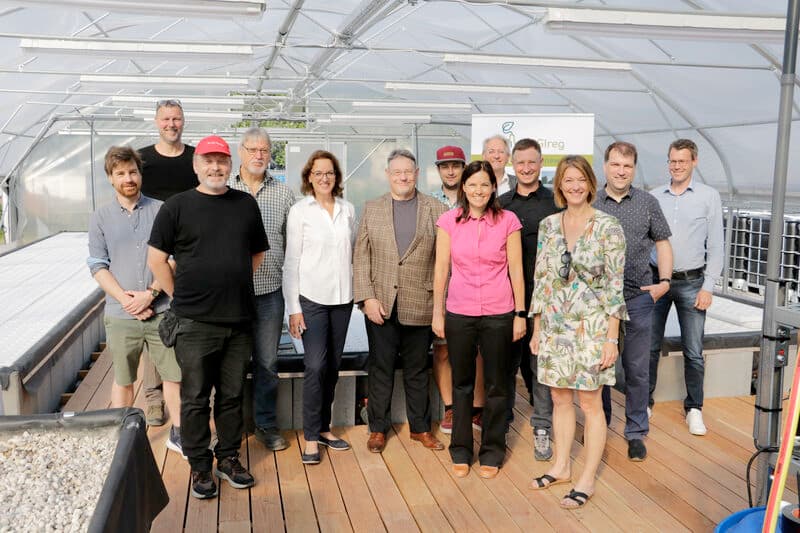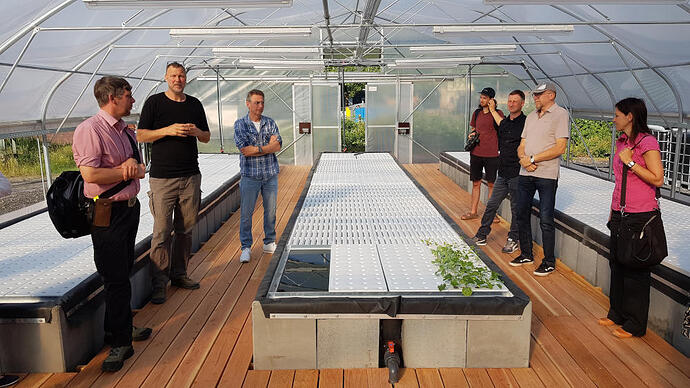Our aquaponic system at Kokerei Hansa, Dortmund, is now officially live. We started talking about this concept of running an aquaponic system eight years ago at the urbanisten association. The proGIreg project finally allowed us to realize the concept. A big shoutout to the aquaponik manufaktur GmbH who designed the system with us.
We know from previous research that one has to build large systems if aiming for conventional distribution channels of the products (eg supermarkets). But one hectar and above sites are usually not available within city limits. For smaller sites we deliberatly chose a #clevertech approach with foil tunnels. The system is meant to be run as a community, so CSA is ‘Community Supported Aquaponics’ for us.
Instead of selling the produce, we think that a ‘rent-a-raft’ concept can reach economic viability. Users of the system are meant to pay a monthly fee for two rafts of approximately one square meter size. In addition to this, community growbeds provide herbs, and sack culture for potatoes or carrots and AutoPot buckets with peppers and tomatoes complete the variety of produce.
Target user groups are people from the neighbourhood who would like to produce their own healthy food, but who do not want to carry the burden of maintaining an allotment garden. In our system the plants are always irrigated, always fertilized and there is no soil to dig and no weeds to pick. The operator crew is taking care of plant protection with beneficial insects.
We are curious: How much would you be willing to pay for using such a system? Please leave a message with what you think would be a reasonable range for a monthly fee. Please write your answer in the comments.
We are starting the system without fishes. That requires an additional permit which we are going to apply for in the near future. Since the revenue of the system is coming from the plant side, there is no economic pressure on the aquaculture, allowing to run the system focussing on fish welfare instead of productivity.
The soil contamination at the chosen site required extensive measures to ensure food safety, leading to elevated costs. These cost could be covered with additional 44k€ from City of Dortmund an 15k€ by our University. The first batches of harvest are going to go to a lab to check for contaminants. Preliminary results from outside plants growing wildly in soil show that contaminants are roundabout 10 fold below legal thresholds. We are very confident the food quality is going to be pristine.
The support by Industrie Denkmalstiftung is exceptional. We are really happy to have our system at such an interesting location. It can not get any more ‘post-industrial’ as this former coking plant.
In the coming years we are continuing our work and using the system as a base for our new INCiTiS-FOOD project. We aim to make innovative food production systems more popular in six african countries.
2027 our system will be a part of the international gardening exhibition IGA Metropole Ruhr 2027.

